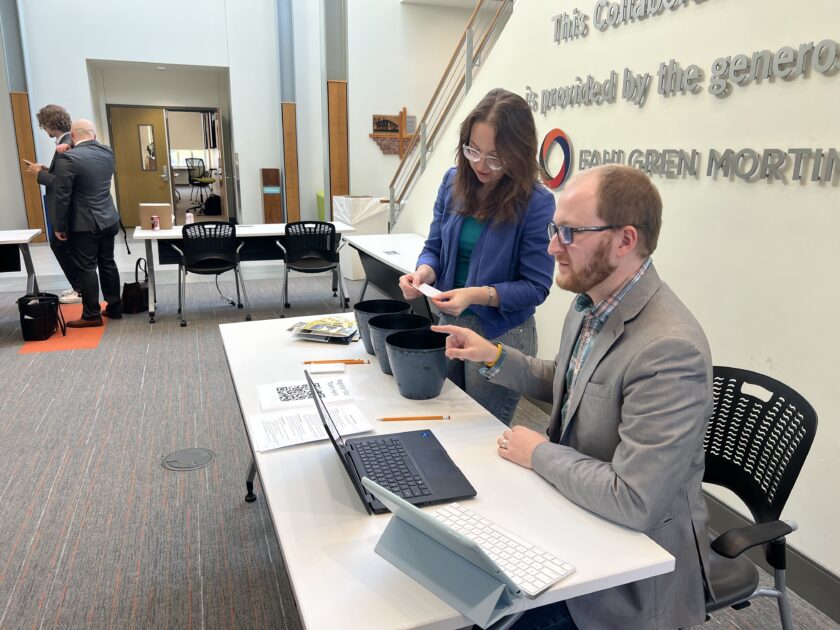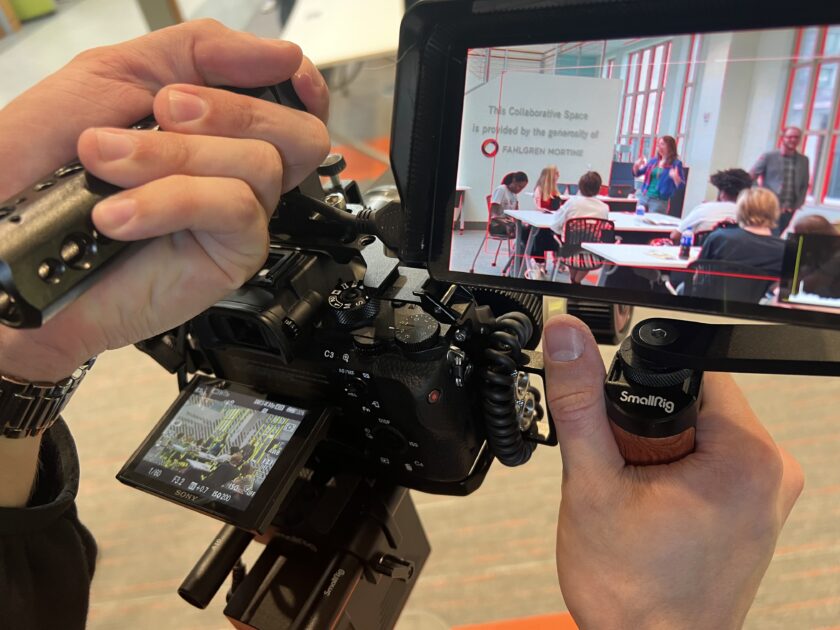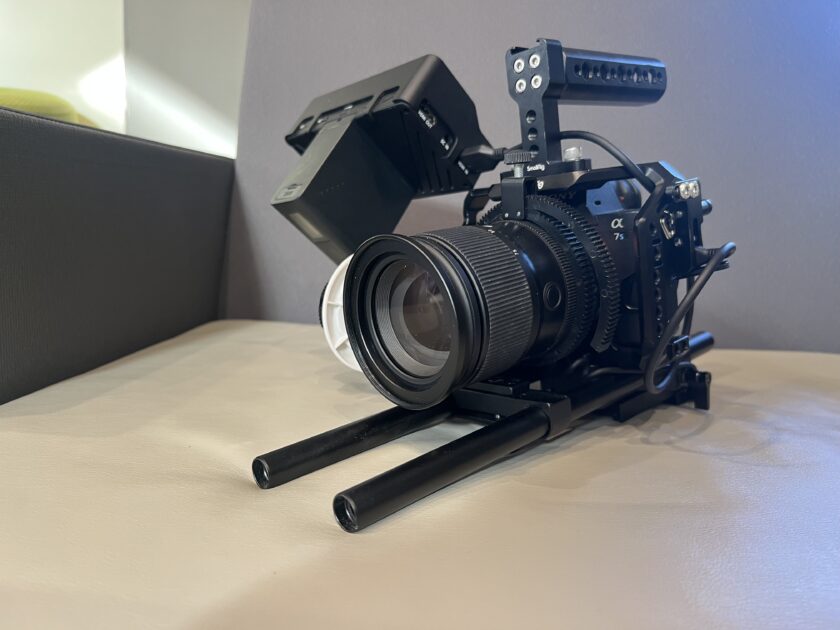Over the past weekend the university hosted its annual 48 Hour Film Royale.
The event, organized by the university’s Film and Media Production program, challenges students and other prospective filmmakers to film and edit a short movie within a forty-eight hour timespan.
“This is a competition for students here at Capital where you will have forty-eight hours to make a film, from start to finish, from writing all the way until editing,” said Nathan Gjerstad, an instructor for the university’s Film and Media Production program. “They are given a line of dialogue, a prop that they need to include and a genre that they need to keep these films at.”
Film prompts are randomly drawn at the beginning of the event, with a wide array of options available.

“We decided to stay away from a lot of fantasy, given that it requires usually a lot of costuming and props,” said Gjerstad, remarking on the available genres.
Beyond these limitations, participants in the contest are given a considerable degree of freedom in how they shoot their films. However, the event requires participants only draw on material that they created within that forty-eight hour timespan.
“That’s part of the challenge is based on, what can you come up with in the next forty-eight hours that will be original work that is shot during this weekend?” said Sabrina Evans-Renkar, the director of the Film and Media Production program. “I don’t think anybody has ever not adhered to that.”
Participants often find creative ways to make the best of the challenges imposed on them.
“The group that won last year… they shot down in a graveyard south of town,” said Evans-Renkar. “They shot downtown at one of the bridges on Rich Street. So it’s really just the creativity that they can spark, and then it comes down to have they taken the lessons that we’ve been instructing our class? How do you plan these things? How do you make the most efficient use of your time? How do you delegate the teams in such a way that people can be shooting and editing at the same time so that you can be a little more ambitious?”

Jonathan Pinkerton, a senior Film and Media Production major, directed the film “Whistleblower,” which won last year’s 48 Hour Film Royale.
“I have been filmmaking for seven years,” said Pinkerton. “Seriously, it’s been more like three or four, but I started back in high school. I went to a career center for interactive media and then eventually moved my way up. Went to Columbus State for a couple years, and now I’m here at Capital making films.”
Part of the challenge of making films for the event is that groups often spend too much time focusing on pre-production and filming, he explains.
“You underestimate how much time you need while editing and putting that together, and that can be a real challenge,” said Pinkerton. “We have tried to give ourselves, from the end of Saturday until submission, all of that time to edit because you’ll finish, you’ll export it, get it all together, and then you’ll remember ‘shoot, I forgot to do this thing.’”
Pinkerton’s crew primarily shoots using a customized Sony A7 SII camera rig with different options for lenses and monitors. Additionally, the crew has several pieces of audio equipment at their disposal, including lavalier, shotgun and boom microphones.

For post-production, Pinkerton’s team largely relies on Adobe’s Creative Suite.
“We’re going to be editing in Premiere Pro, doing some color correcting in DaVinci Resolve,” said Pinkerton. “Last year, we actually made some graphics in After Effects and Photoshop, sort of working between the two.”
Entries into the competition are brought before a panel of judges, who are usually composed of people outside the university.
“We tend to seek out judges that are film and media professionals outside of the realm of Capital in some respects,” said Evans-Renkar. “So, a lot of times we’ve had a number of alums who’ve gone on to become professionals and who have come back to join the judging team.”
This panel of judges critiques entries based on a number of factors.
“Is this just a good movie, like you can see at a film festival? Is it shot well? Is the sound good? Is the acting good? Is the story interesting?” said Evans-Renkar. “We’re always looking for ways to integrate all of the elements in the most thoughtful way.”


